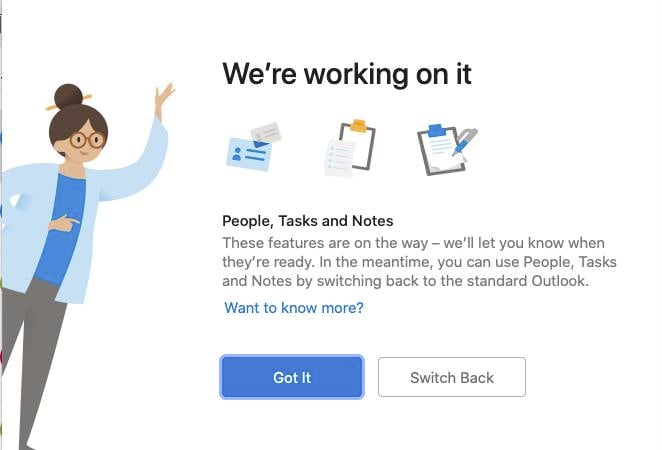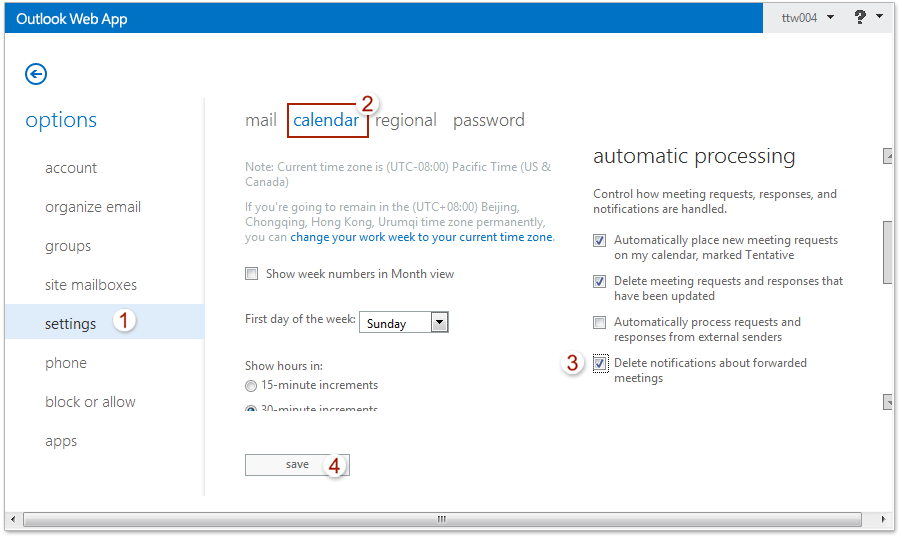

Click on ‘Blah blah blah’ button to show the full headers, then do File > Save As. Otherwise, what you have to do it go to “…” then “View message source”, then copy the contents into a new file on your desktop with a “.eml” extension, then compose a “New” message and attach the. Seriously, you’re forwarding GreenNet email to Microsoft Webmail? One solution is getting a sensible email program like Thunderbird.
#Forward a meeting in outlook for mac software#
If you are really determined, you could try the software available at or Office 365 We are looking to see if there is a solution to this. The method described for Outlook 2003 does send a message as an attachment, but unfortunately it removes the headers required by SpamCop or GreenNet. You can tell Outlook to always forward as attachment by going to ‘Tools’ > ‘Options’ > ‘Preferences’ > ‘E-mail Options’ > ‘When forwarding a message’, and selecting ‘Attach original message’ > ‘OK’. Type the destination email address and press ‘send’. Then select the message you want to attach, and make sure that any ‘Insert As’ option is set to ‘Attachment’ before clicking ‘OK’. In the top half of the window that opens, select the folder that contains the email you want to send, usually Inbox. You can then either drag and drop one or more messages into the new message (if after selecting the message you can’t see the new message window any more, drag it instead to the taskbar button for the new message and the window you want should come to the foreground) or from the menu, click the ‘Insert’ menu and then choose ‘Item’. (You could also use this to send a single email, by selecting a message you don’t want to send, and then removing that attachment before sending.)Īlternatively, start a new email message. This automatically attaches the emails to a blank message – Outlook decides for itself whether to forward as an attachment depending on how many messages you are forwarding. Then right-click and select ‘Forward items’. To forward multiple emails, select the messages (by holding the ‘Shift’ or ‘Ctrl’ keys when clicking). In Outlook 2007, ‘Forward as Attachment’ is available from the ‘Actions’ menu when one or more emails are selected. Right-click the message, select ‘More Actions’ and then click the ‘Forward as Attachment’ option. (An alternative is to select multiple emails as in Outlook 2003/XP below.) Outlook 2010 Select the email you want to forward in the folder, and then drag it to the body area of the email. Outlook 2011 for MacĬlick on “E-mail” to create a new email (or attach to any reply). You can also select multiple messages by holding the ‘Shift’ or ‘Ctrl’ keys when clicking, and then right-click and ‘Forward as Attachment’ as above. If you want to send multiple messages, you can also drag and drop messages onto the message window. In the context menu that appears, click ‘Forward as Attachment’ (this is also available from the ‘Message’ menu) at the top of the screen. Right-click the message that you want to forward.

If this isn't appearing in message view, go to Options > Display Preferences > Message Display and Composition > Enable Forward as Attachment > Yes > Submit. There should also be an option when viewing individual messages to ‘Forward as attachment’. To forward one or more emails, tick the messages you want to forward, and click ‘forward’. This is very easy using the new (Squirrelmail) webmail system. The message should appear in the attachment box in a new message. (You can select multiple messages by holding the ‘Shift’ or ‘Ctrl’ keys when clicking.) Then from the menu bar at the top of the screen, choose ‘Message’ > ‘Forward As…’ > ‘Attachment’. Select the message or messages you want to forward. Thunderbird (including Netscape, SeaMonkey) This is particularly useful when forwarding email for technical reasons, for example any spam that has been received. Here are the methods to do this for various types of email software. To forward one or more emails exactly as they were sent, you can ‘forward as attachment’.


 0 kommentar(er)
0 kommentar(er)
